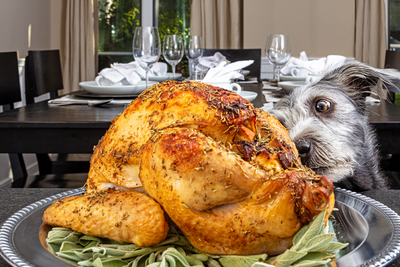November is pet cancer awareness month, and although we should be educated about cancer in our pets all the time, we aim to give extra effort this month. In this article, we will discuss pet cancer in detail.
What Are the Symptoms of Cancer in Pets?
Cancer is a leading cause of death in dogs and cats, with most cases occurring in animals over six. While cancer symptoms can vary depending on the type and location of the tumor, some common signs may indicate your pet has the disease.One of the most common symptoms of cancer in pets is a lump or mass that can be felt under the skin. These masses may be benign (non-cancerous) or malignant (cancerous), and can occur anywhere on the body. Other symptoms of cancer in pets can include:
- Weight loss
- Loss of appetite
- Lethargy
- Lameness or stiffness
- Difficulty breathing
- Abnormal bleeding or discharge
- Persistent cough
What Are the Different Types of Cancer in Pets?
Many different types of cancer can affect our pets. Some forms of cancer are more common in certain breeds of animals, while others can affect any type of pet. Here is a list of some of the most common types of cancer found in pets:Bladder Cancer: This type of cancer is most common in dogs and can affect male and female dogs of any age. Bladder cancer may cause your dog to urinate more frequently or to have blood in its urine.
Breast Cancer: This is most common in female dogs but can also affect male dogs and cats. Breast cancer may cause your pet to have a lump or mass in its breast tissue.
Skin Cancer: Skin cancer is relatively common in both dogs and cats. It can appear as a growth or mass on the skin or as a lesion that is ulcerated or bleeding.
Lymphoma: Lymphoma is a type of cancer that affects the lymphatic system. It is relatively common in dogs and cats and can cause your pet to have enlarged lymph nodes, weight loss, and fatigue.
Bone Cancer: Bone cancer is most common in larger breeds of dogs but can also affect cats. Bone cancer may cause your pet to have lameness or pain in its bones.
What Causes Cancer in Pets?
While the exact cause of cancer is unknown, some risk factors may increase your pet's chances of developing the disease. One of the biggest risk factors for cancer in pets is age. As animals age, their cells begin to break down and do not function as well as they used to. This can lead to the formation of cancerous tumors.Certain breeds of animals are also more prone to developing cancer than others. For example, Golden Retrievers have a higher risk of developing lymphoma, while Siamese cats are more likely to develop leukemia. Certain chemicals and toxins can also increase your pet's risk of cancer. These include tobacco smoke, herbicides, and pesticides.
How Is Cancer Diagnosed and Treated in Pets?
Early detection and treatment are critical to the success of treatment and the prognosis for your pet. There are many different types of cancer, each with its symptoms, so it is important to work with your veterinarian to get a proper diagnosis.There are several ways that cancer can be diagnosed in pets. A physical examination by your veterinarian is the first step and may reveal lumps or bumps that could be cancerous. Your vet may also recommend X-rays or ultrasounds to look closely at suspicious areas. A biopsy, where a small sample of tissue is taken for analysis, is the only way to diagnose cancer definitively.
Once cancer is diagnosed, your veterinarian will work with you to create a treatment plan. Treatment options will vary depending on the type and stage of cancer and your pet's overall health. Surgery often removes tumors and may be combined with radiation therapy or chemotherapy. Newer, targeted therapies are also successfully used to treat some types of cancer.
The most important thing you can do for your pet if they are diagnosed with cancer is to remain positive and work with your veterinarian to create the best treatment plan possible. With early detection and proper treatment, many pets can go on to lead long and happy lives.
Ways to Prevent Cancer in Pets
You can do many things to reduce your pet’s risk of developing cancer, some of which are surprisingly simple. Here are a few ways to prevent cancer in pets:1. Keep Them at a Healthy Weight
Obesity is a major risk factor for cancer in both humans and animals. Keeping your pet at a healthy weight will help reduce their risk of developing the disease.2. Get Them Vaccinated
Certain types of cancer, such as lymphoma, can be prevented with vaccinations. Be sure to talk to your veterinarian about which vaccines are right for your pet.3. Avoid Smoking around Them
Secondhand smoke is just as harmful to pets as it is to humans. If you smoke, do it outside and away from your pet to reduce their risk of developing cancer.4. Keep Them Away from Toxins
Many common household products, such as cleaners and pesticides, can be toxic to pets. Keep them out of reach and away from your pet to reduce their risk of exposure.5. Feed Them a Healthy Diet
A healthy diet is important for overall health and can also help reduce cancer risk. Look for pet foods high in antioxidants and omega-3 fatty acids, which have been shown to help protect against the disease.Conclusion
Awareness of the signs and symptoms of cancer in pets is important, as early detection and treatment can improve the prognosis. While cancer is a serious disease, many pets can still enjoy a good quality of life with treatment. If you are concerned that your pet may have cancer, please consult your veterinarian.If you are seeking pet supplies in Delaware, you can get them from Maggie’s Pet Boutique. We stock up on high-quality items with varying prices to ensure that pet owners with different budgetary needs can find what’s suitable. Get in touch with us to learn more about our products.





